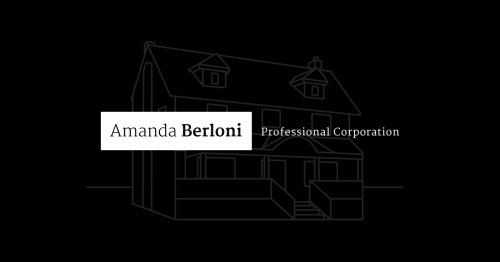Best Environmental Law & Compliance Lawyers in Canada
Share your needs with us, get contacted by law firms.
Free. Takes 2 min.
Or refine your search by selecting a city:
List of the best lawyers in Canada
About Environment Law in Canada
Environmental law in Canada is designed to regulate the interaction between human activity and the natural environment. Its primary aim is to reduce the impact of human actions on natural surroundings and to address issues such as pollution, resource conservation, and ecosystem protection. Various levels of government - federal, provincial, and municipal - contribute to and enforce environmental laws to ensure sustainable development and to address specific regional environmental concerns. Key legislations include the Canadian Environmental Protection Act (CEPA), Environmental Assessment Act, and various provincial acts like British Columbia's Environmental Management Act.
Why You May Need a Lawyer
Environmental issues can often lead to complex legal situations, where professional legal assistance becomes crucial. Common scenarios include: - Navigating compliance requirements for businesses with environmental regulations. - Handling disputes over land use or natural resource extraction. - Addressing accusations regarding environmental damage or pollution. - Negotiating cleanup operations after contamination events. - Understanding the legal implications of buying or selling property with potential environmental issues. - Challenging or defending against regulatory actions by government bodies.
Local Laws Overview
Canada's environmental laws are a blend of federal statutes and provincial/territorial regulations. Some key aspects include: - **Federal Laws**: Govern overarching environmental issues affecting the entire country, like air and water quality, toxic substances, and cross-border pollution. - **Provincial/Territorial Laws**: Focus on more region-specific concerns like fisheries, wildlife management, and forestry practices. - **Municipal By-laws**: Often address local environmental matters, such as recycling programs and land development regulations. - **Regulatory Agencies**: Bodies like Environment and Climate Change Canada and provincial ministries oversee enforcement and compliance.
Frequently Asked Questions
What is the Canadian Environmental Protection Act (CEPA)?
CEPA is federal legislation aimed at preventing pollution and protecting the environment and human health. It provides a framework for managing toxic substances and governing areas like air and water quality.
How is environmental law enforced in Canada?
Enforcement is conducted by various governmental levels and agencies, using tools like inspections, fines, and prosecutorial actions to ensure compliance with environmental laws.
What are environmental assessments?
Assessments are studies required before large projects are approved, ensuring that potential environmental effects are considered and mitigated.
Can individuals be held liable for environmental damage?
Yes, individuals and corporations can both be held accountable for contravening environmental laws, and may face litigations, fines, or mandatory corrective actions.
How do Indigenous rights relate to environmental law?
Indigenous groups have treaty rights which include consultation obligations on environmental matters affecting their land and resources.
What are the penalties for non-compliance with environmental laws?
Penalties vary widely, from financial fines to imprisonment, depending on the severity of the breach and the jurisdiction.
Can environmental regulations affect property value?
Yes, properties with contamination issues or those restricted by environmental regulations may see variations in value.
What is sustainable development in the context of environmental law?
It refers to the responsible management of resources to meet current needs while ensuring their availability for future generations.
What role do environmental NGOs play in law enforcement?
Non-governmental organizations often advocate for stronger laws, aid in public education, and can initiate legal actions as watchdogs.
Are there environmental laws specific to the Arctic region in Canada?
Yes, regulations addressing unique ecological challenges in the Arctic, such as polar bear conservation and managing the impact of oil and gas exploration, are in place.
Additional Resources
For further assistance, individuals can consult: - Environment and Climate Change Canada - Provincial ministries of the environment (e.g., Ontario Ministry of the Environment, Conservation and Parks) - The Canadian Environmental Law Association (CELA) - Local legal aid services or bar associations for lawyer referrals.
Next Steps
If you require legal assistance in environmental matters, consider the following steps: - **Identify the Specific Issue**: Clearly outline your environmental concern or the regulation in question. - **Research Potential Lawyers**: Look for legal professionals specializing in environmental law, using online directories or local bar association resources. - **Prepare Documentation**: Gather relevant documents, such as permits, assessment reports, and correspondence with regulatory bodies. - **Consultation**: Arrange consultations with potential lawyers to discuss your case and their experience handling similar issues. - **Engage Legal Services**: Once you're confident in your choice of legal representation, engage their services to explore your options or defend your rights.
Lawzana helps you find the best lawyers and law firms in Canada through a curated and pre-screened list of qualified legal professionals. Our platform offers rankings and detailed profiles of attorneys and law firms, allowing you to compare based on practice areas, including Environmental Law & Compliance, experience, and client feedback.
Each profile includes a description of the firm's areas of practice, client reviews, team members and partners, year of establishment, spoken languages, office locations, contact information, social media presence, and any published articles or resources. Most firms on our platform speak English and are experienced in both local and international legal matters.
Get a quote from top-rated law firms in Canada — quickly, securely, and without unnecessary hassle.
Disclaimer:
The information provided on this page is for general informational purposes only and does not constitute legal advice. While we strive to ensure the accuracy and relevance of the content, legal information may change over time, and interpretations of the law can vary. You should always consult with a qualified legal professional for advice specific to your situation.
We disclaim all liability for actions taken or not taken based on the content of this page. If you believe any information is incorrect or outdated, please contact us, and we will review and update it where appropriate.
Browse environmental law & compliance law firms by city in Canada
Refine your search by selecting a city.















